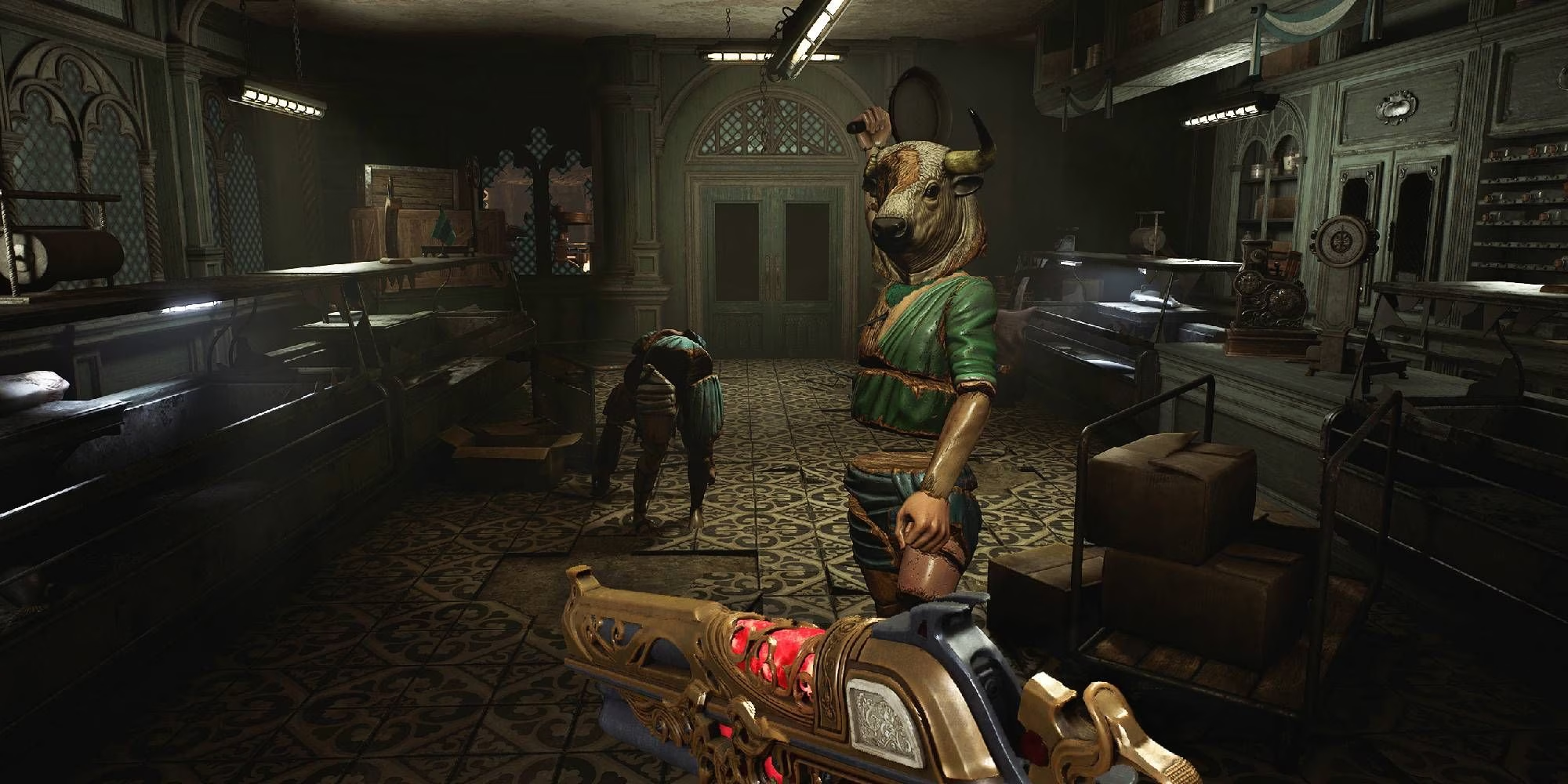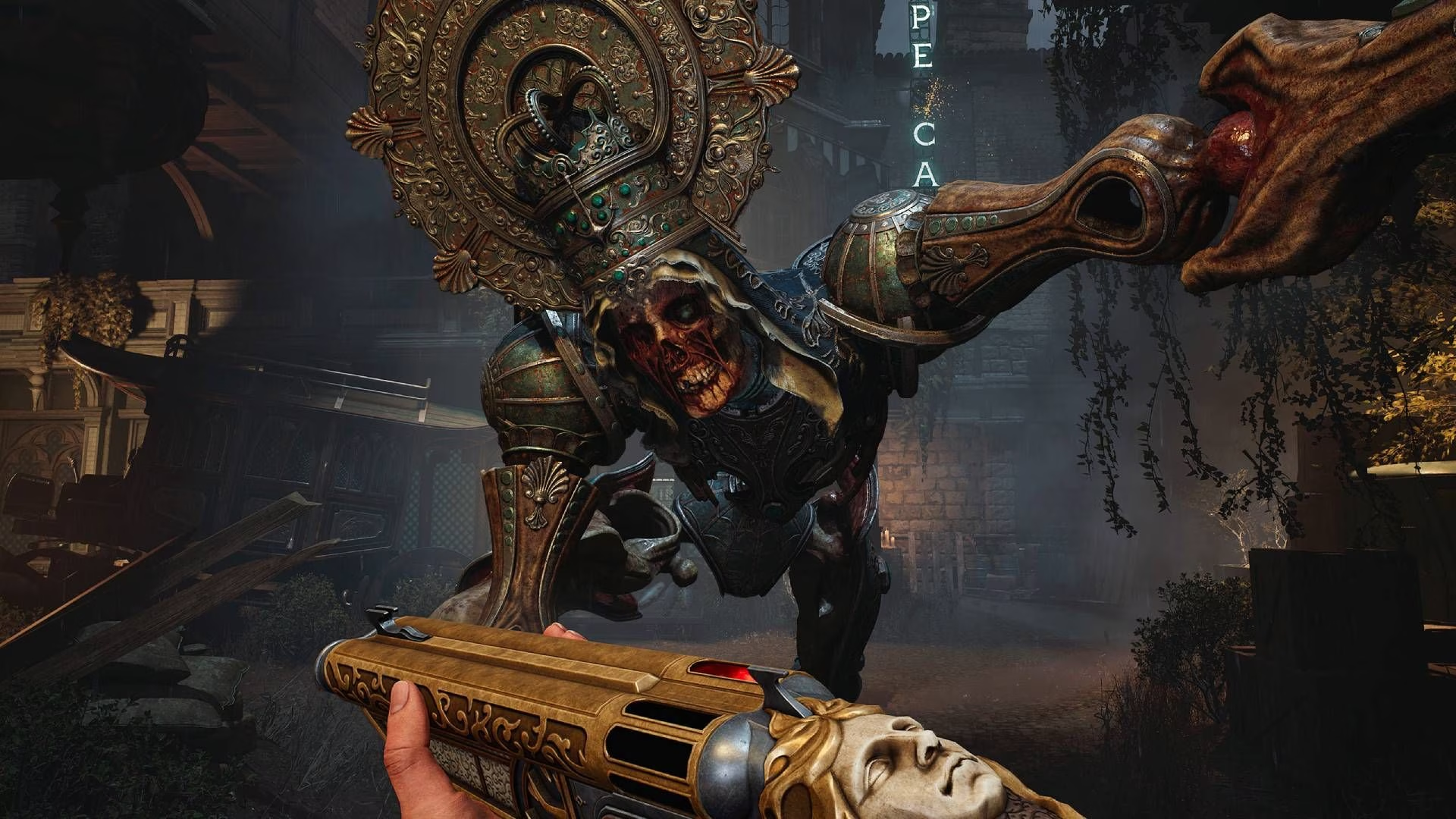In the shadowy streets of Tormentosa, where statues come alive with murderous intent, Gabriel found himself on a divine mission that would test not only his faith but his willingness to sacrifice. The year was 2025, and the gaming world had just been introduced to one of the most innovative survival horror experiences in recent memory. Crisol: Theater of Idols, developed by Spanish studio Vermila Studios, had created a macabre fairytale world where Spanish history, folklore, and religion blended into something both beautiful and terrifying.
The Blood That Gives and Takes

Gabriel moved cautiously through the abandoned buildings, his footsteps echoing in the eerie silence. As a soldier serving a divine sun god, he possessed a unique ability – his blood was both his greatest weapon and his most precious resource. In Crisol's ingenious gameplay mechanics, blood represented the duality of life and death: the power to heal and the power to destroy.
When Gabriel needed to reload his weapons – be it his trusty pistol, shotgun, or bolt action rifle – he didn't reach for conventional ammunition. Instead, he drew his own blood, watching as it coalesced into bullets within the chamber. Each reload consumed a portion of his health bar, creating a delicate balancing act that players must master. Every shot fired was literally a piece of Gabriel given away, a sacrifice made in service to his holy mission.
The living quality of blood in Crisol was something to behold. It moved with an almost sentient quality, reminiscent of symbiotic entities from science fiction. Gabriel could absorb blood from fallen enemies, the crimson essence flowing from their bodies into his own. The reload animations were particularly striking – blood draining from Gabriel's arm into the weapons' chambers through intricate, almost ritualistic processes.
A World of Living Statues and Divine Conflict
The fictional country of Hispania harbored dark secrets within the island of Tormentosa. Here, statues that should have been mere stone and metal hunted the living with relentless determination. The pantheon of living gods that ruled this world existed in a delicate balance, now disrupted by ambition and betrayal. Gabriel's mission, as an agent of the sun god, was to cleanse Tormentosa and confront a rival deity who had overstepped their bounds.
As he navigated the winding streets and dilapidated buildings, Gabriel encountered puzzles and obstacles that blocked his path – chained doors requiring bolt cutters, gates needing cranks to open, and shortcuts connecting previously explored areas. The influence of classic survival horror titles was evident, but Crisol added its own distinctive flavor to the formula.

One particularly harrowing encounter involved a horrific creature, a grotesque fusion of flesh, statue parts, and machinery. This monstrosity pursued Gabriel relentlessly, forcing him to hide under desks and leap through windows to escape its grasp. The cat-and-mouse gameplay created moments of intense terror, showcasing the game's ability to generate genuine fear.
Blood Magic and Mysterious Mermaids
What set Crisol apart from other survival horror games was its commitment to its unique world-building. The strange and beautiful dark fantasy setting raised countless questions: Why were there statues coming to life? Where had all the people gone? And perhaps most intriguingly, what was the significance of the mermaid blood vials scattered throughout Tormentosa?
The mermaids, only briefly mentioned in passing encounters, added another layer of mystery to the already enigmatic world. Their blood, seemingly collected and stored in vials, suggested they held some special power or significance in this realm of living gods and blood magic.
The Streamlined Horror Experience
One of Crisol's greatest strengths was how it streamlined the survival horror experience. By making blood the primary resource for both health and ammunition, the game eliminated much of the inventory management that often pulled players out of the immersion in other titles. A vial of blood served dual purposes – it could restore Gabriel's health or provide ammunition for his weapons. This elegant system kept players focused on the action and atmosphere rather than menu navigation.
People Also Ask
How does the blood mechanic in Crisol: Theater of Idols work?
In Crisol, players use their own character's blood to create ammunition. When reloading a weapon, you sacrifice a portion of your health bar to create bullets. This creates a strategic balance where every shot fired literally costs you life force. Blood can also be absorbed from enemies and used to heal, creating a unique resource management system.
Is Crisol: Theater of Idols connected to real Spanish history?
While Crisol draws inspiration from Spanish history, folklore, and religious imagery, it takes place in the fictional country of Hispania on the island of Tormentosa. The game blends historical elements with dark fantasy to create its unique setting rather than directly representing actual historical events.
What other games is Crisol: Theater of Idols similar to?
Crisol combines elements reminiscent of Resident Evil's exploration and puzzle-solving with Bioshock's immersive world-building and storytelling. The blood mechanic adds a unique twist that sets it apart from other titles in the survival horror genre.
The Bleeding Edge of Horror
As Gabriel continued his divine mission through the haunted streets of Tormentosa, one couldn't help but wonder about the larger implications of this blood-soaked world. In a game where sacrifice was literally built into every action, what was the true cost of salvation? When gods demanded blood, was there ever truly a victory for mortals caught in their conflicts?
The dark beauty of Crisol: Theater of Idols wasn't just in its innovative mechanics or striking visual design, but in how it used these elements to ask uncomfortable questions. In a medium where violence is often consequence-free, what does it mean when every bullet fired is a piece of yourself given away? When the line between savior and sacrifice becomes blurred, who is really serving whom?
Perhaps that's the most terrifying aspect of Crisol's world – not the monsters that lurk in shadows, but the possibility that divine purpose might demand more than any mortal should give. And yet, isn't that the essence of true horror? Not just the fear of what might kill us, but the fear of what we might become in our quest to survive?
As 2025 continues to deliver innovative gaming experiences, Crisol: Theater of Idols stands as a bloody testament to how the survival horror genre can still surprise, terrify, and make us question not just our in-game strategies, but our understanding of sacrifice itself.
